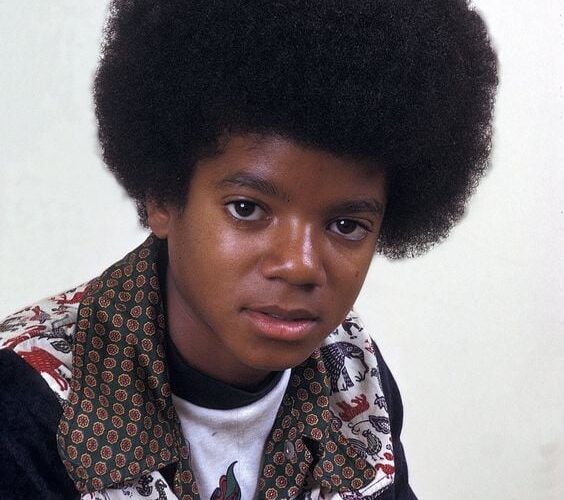Michael Jackson: Proof That Real Wealth Doesn’t Die

When most people think about making money, they think about working harder, grinding longer hours, chasing every small opportunity like it’s their last breath, but stories like Michael Jackson show a whole different league of wealth — the type where even after you leave this world, the systems you built and the assets you owned keep feeding generations. Michael Jackson passed away in 2009, yet in 2024 alone he reportedly pulled in around $600 million, and in 2025 another estimated $105 million, bringing the total post-death earnings to over $3.5 billion. That’s not luck, hype, or some Hollywood magic — that’s the result of building a legacy with assets that don’t clock out when you do.
This is a reminder that real financial power comes from ownership — not from being busy, not from trying to impress people with how hard you hustle, and definitely not from thinking short-term. MJ didn’t get rich because he sang a few good songs; he got rich because he owned masters, catalogs, image rights, deals, and brand value that the world could never stop paying for. That is the difference between a moment and a legacy — most people chase quick wins and “fast cash,” while the real wealth builders create assets that stay alive even when they’re gone. The world forgets people who only worked, but it forever pays the ones who built something that serves millions.
The harsh truth is most of us grew up thinking money comes from work — but this era demands a new mindset. If you think only about making money today, you’ll always start from zero tomorrow. But if you focus on building assets — a brand, a company, intellectual property, land, a digital product, a system, a marketplace, anything that continues operating — you shift from trading time to building value. That’s how legacies are made. That’s how you escape the emotional rollercoaster of “grind, earn, struggle again.” Wealth is not about effort; it’s about structuring your life so the world keeps paying you whether you’re active or not.
So don’t just hustle for now — hustle for forever. Create things that your kids, your community, and even strangers will use long after you’re gone. Shift from consumers to creators, from short-thinking to empire building. The music industry didn’t “love” Michael Jackson — he owned strategically, and because of that, the world keeps paying him long after his last breath. You don’t need his fame to follow the formula. You just need the guts to think bigger than survival. Build something that cannot die with you — that’s real power.
💼 Legacy Business > Daily Hustle: Entrepreneurship With Michael Jackson Logic
In entrepreneurship, most people obsess over making money today — rushing to close deals, chasing customers one by one, going from task to task like they’re being chased by life itself — but the real bosses operate on a different wavelength entirely: they build systems, brands, and assets that keep moving even when they’re not present, the same way Michael Jackson’s estate keeps earning hundreds of millions long after he is gone. That’s not hype or celebrity privilege; that’s the hard truth of ownership — when you own intellectual property, brands, products, and rights, time becomes your employee instead of your enemy. Entrepreneurs who think like employees always ask “how can I make money right now?”; entrepreneurs who think like legacy builders ask “what can I build now that will continue feeding my life ten years from today?”
And, let’s be honest, a lot of entrepreneurs grind themselves into exhaustion with businesses that can’t scale, can’t work without them, and collapse the second they stop showing up, because they confuse “working hard” with “building value.” Real entrepreneurship isn’t about running around doing everything yourself; it’s about designing something that eventually outgrows your physical effort — systems, platforms, intellectual property, networks, automation, technology, communities, supply chains, brand ecosystems. Michael Jackson didn’t keep earning because he kept performing — he built rights and value that continued performing for him. In the business world, the equivalent is owning your brand, controlling your distribution, building assets that repeat value, and not depending on your physical presence for every coin.
The most painful but freeing truth? If your business dies when you stop working, you don’t own a business; you own a job with stress and no HR department. But if you shift your mindset from “let me hustle now to survive” to “let me build systems and assets that will serve thousands long-term,” you unlock the exact same mechanism that differentiates legends from average hustlers. Legacy isn’t built by speed — it’s built by vision, patience, and structure. Yes, it takes more strategy, yes it demands discipline, but if you don’t build your own compounding engine, you’ll always be restarting from zero. Entrepreneurship is not a race to earn fast; it’s a mission to build something that won’t collapse when you blink.
So don’t just chase transactions — build ecosystems. Don’t just sell products — create brand identity people trust beyond you. Don’t just post for attention — build community, loyalty, and repeat systems. Every entrepreneur needs to decide: are you just hustling for money, or are you building something that will still send value into the world when you’re done working? In life and business, money moves toward creators, not chasers; toward owners, not reactors; toward those who plant trees that will still shade the world years later. Build like it’s your name and your future generations signing the blueprint — because that’s how legends do it.


